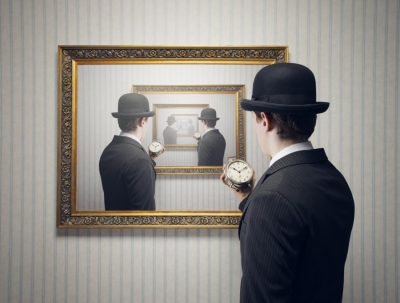
What is deja vu? Deja vu is French for “already seen.” Most of us have experienced this deja vu feeling, haven’t we? We see or experience something and immediately we get this strong feeling of having seen or experienced it in the past. But we are sure whether it has actually happened before or not. Mostly deja vu is just a fleeting thought and that’s why it is very difficult to study and remains a mystery to scientists. However, there are many theories that explain the science behind deja vu. One theory says momentary glitches in our memory system are responsible – deja vu is evoked when there is a mismatch between the sensory input and memory-recalling output, making a new experience seem like an old one.
Split perception explanation says deja vu happens if a person experiences a sensory twice successively. The first input could be brief and distracted and when the second input happens, the person might feel a sense of familiarity. Deja vu is more common in younger people and trails off in old age, as memory deteriorates.
Did you know the opposite of deja vu is ‘Jamais vu’? Jamais vu occurs when people feel like they’ve never experienced a situation before, even though they have experienced the situation previously. In other words, the familiar does not seem familiar.
Picture Credit : Google




